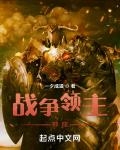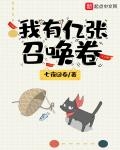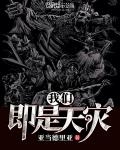Chapter 153: Ertong Supermarket
Walton's full name is Ben Ham Walton.
His middle name comes from his godfather. The Walton family once had a glorious past in the Kenyan Empire. Walton also lived a wealthy life in his youth... until the Walton family went bankrupt.
The Age of Discovery that arrived four hundred years ago brought many changes to the world, such as the emergence of a new breed of bourgeois aristocrats.
These new-style bourgeoisie aristocrats, who made a fortune from the great voyages and used their wealth to open the door to imperial honors, had an impact on the upper class of the Kenyan Empire. The most direct manifestation of their impact was that they no longer had enough fiefdoms.
The status of a noble who does not have a fiefdom to match his title is unstable.
In the past four hundred years, whether it is the Kenyan Empire or other countries that participated in the great voyages, there have been more territorial wars that broke out in their countries than in the first six hundred years since the new era.
The Walton family was defeated because of a territory war. As a traditional noble family, the Walton family fought a territorial war with another wealthy new-style noble family for ten years over the same territory. When Walton's uncle was in charge, the Walton family, who still held the title of viscount, could not even come up with the 10,000 gold coins in compensation for the defeat.
The young Walton had to join the church and become a night watchman to face danger in order to earn the relatively generous annual salary of the night watchman to make up for the compensation.
During his more than 20 years of career as a night watchman on the Karan Peninsula, Walton came into contact with many things that he had never encountered when he was the young master of the Viscount's family, such as disasters and the pervasive cult.
No one is born hard-hearted, not even Walton.
In the Karan Peninsula, which has two cities, hundreds of small towns, and hundreds of villages of all sizes, every year, several to dozens of families suffer misfortune due to cult worship.
Walton has dealt with horrific scenes of mothers burning their children to death, and witnessed villages where agriculture had been abandoned due to blind worship of evil gods. He has personally executed crazy believers who tried to sacrifice their relatives, and has seen with his own eyes how towns affected by disasters have gone from being bustling and prosperous to being desolate and decadent.
Family changes made Walton abandon the unrealistic fantasies that all young people have very early on. He knew very well that he was just an ordinary person.
People can only do what they can do - this was the survival creed that Walton had established when he became a night watchman in order to pay the war compensation owed by his family.
He cannot change the world, but at least he can try his best to eliminate those evil things that should not exist in the world.
After realizing the difference in power between the two sides, Walton had given up on dealing with the Nightmare Butcher; but Walton believed that he still had a way to bring down Charlie Rex, the illegitimate son of the nobles who was stirring up trouble under the cover of the Nightmare Butcher.
But now... Walton began to panic.
He vaguely felt that there seemed to be something wrong with his judgment...
Not far from the egg shop, there is another crowded shop.
This building was obviously renovated drastically. The walls facing the street were demolished and supported by pillars. Waist-high counters were placed between the pillars. Bamboo hollow baskets were closely arranged in the counters. The baskets were full of chirping chickens and ducks...
Behind the counter, a young woman in a town hall clerk's uniform held up a handheld loudspeaker and shouted, "Chicks and ducklings that Mayor Ji Tang personally taught how to hatch. Ten copper coins for four, minimum order of eight!"
"Those who want to buy it should line up here first and receive the breeding manual and oxytetracycline... If no one in your family can read, you must memorize the main contents before you can buy it!"
"It doesn't matter if you know how to raise chickens. You can't buy them unless you know how to do it. Mayor Ji Tang personally taught me how to hatch chickens and ducklings. What if they die?"
"Don't just look here, go and line up!"
The customers here obviously have more problems than those in the egg shop next door, and the clerk in charge of sales can't keep a good temper... but the customers don't care. They stare at the lively chickens and ducks on the counter and can't take their eyes off them.
Walton stood outside the crowd in a daze.
"Mayor Ji Tang" is the undead mayor here. Yesterday evening, he went to the entrance of the town hall to look at the notice board... Anyway, from the photos, he couldn't tell the difference between the mayor and the undead wandering around.
The undead hatching chickens and ducklings...this description really left Walton at a loss as to how to react.
It is autumn now, and there are still two months before the coldest winter. This warm period is just enough for the chickens and ducklings to grow up.
Raising these chickens and ducks in the autumn when it is relatively easy to find food will serve as reserve meat for the winter.
After much labor, they hatched so many chickens and ducklings in batches, sold them to the locals at such a cheap price, and taught them how to raise these chickens and ducks... Even if Walton looked at this matter with the most critical eye, he had to admit that this was a great thing for the local farmers and townspeople who had yards at home.
Walton raised his eyes and looked into the store.
The store was also crowded. Two men in security uniforms were maintaining order and asking people entering the store to keep quiet. There was also an older woman standing in front of the crowd, holding a small bottle of khaki powder and saying something...
The woman who was explaining was obviously a local, and her common language had a strong local accent, but it was not difficult to understand. Walton only stood there for a short while before he could vaguely tell that she was telling people: how to tell if chickens and ducks are sick, how to use medicine after they are sick, and how much medicine to use; it can be used not only on chickens and ducks, but also on cats, dogs, cows, donkeys at home, and even on people with fever, fever, and diarrhea...but the dosage must be strictly controlled, and pregnant women must never use it.
Walton looked numb.
The medicine that this kind of person can use is actually just a gift when buying chicken and duck seedlings, right?
As he continued forward, Walton truly could not even show the slightest expression.
This shop, which was also opened by the town hall and had a wide range of goods, was a...two-copper shop.
A huge banner with the words "Two Copper Supermarket" hung on the storefront, and a male clerk stood at the door, repeatedly shouting "Everything in the store is two coppers, everything is two coppers, every item is two coppers."
There were so many types of goods that even the three storefronts, with their huge interior space, could not accommodate them all. Some of the goods had to be piled on shelves or packed in wooden boxes and pulled to the front door for display.
Two coppers is not a small number. It is enough to buy half a pound of black (rye) bread, and enough to buy a whole pot of potatoes... But the goods displayed in this store are so tempting, even more tempting than bread and potatoes.
Not only did the townspeople and the villagers who had money after paying taxes and selling grain rush to buy, but even the farmers who were waiting in line to pay taxes and sell grain could not help but run over...
Two large pieces of yellow soap tied with straw rope, two copper coins.
A bag of laundry detergent, two copper coins.
Towels, slippers, loincloths, two pairs of sleeves, thick socks, combs with steel teeth, mirrors, colorful headbands and hairpins, colorful and even printed scarves, various glass or plastic cups, plates, bowls, and even smaller basins and buckets, steel soup spoons, spatulas, wooden-handled mops, iron hammers, sickles, and screwdrivers, a whole box of iron nails, daggers and knives so shiny that they could reflect people, iron multi-purpose hooks that could be hung behind the door, children's toys... all for two coppers.
Walton squeezed into the store and took a look around. When he came out... he had a fountain pen, a large bottle of ink, a 200-page notebook with very comfortable paper, a folding razor, a box of blades, an exquisite plaid handkerchief, and two pairs of men's boxer shorts on him.
After paying and walking out of the store, Walton finally realized what he had done when the warm autumn wind blew onto the street...
Touching the merchandise stuffed in his four pockets, Walton turned around with a complicated expression and glanced at the bustling Ertong Hypermarket.
He had no doubt at all - if this kind of hypermarket, where people could not leave empty-handed once they walked in, were to open in Inadella, at least half of the grocery stores in Inadella would have to close down within half a month.
No, it’s likely that more than just grocery stores will be affected – this store actually sells food and spices!
A palm-sized bag of salt (100 grams), pepper powder and chili powder packed in a transparent plastic bag, a group of four dry noodles (without seasoning packets), a pound of vinegar, half a pound of spicy strips, etc. ... all for only two coppers!
Walton saw farmers with mud on their clothes coming out of the market carrying large and small bags, playing with the same folding razor as his with care, and happily discussing with their family about giving the newly bought goods to certain relatives.
Walton saw a farm woman counting on her fingers how many people there were in her family, and then she selected towels from the oversized towel display rack at the door of the store.
There was a dark-skinned rural girl who couldn't wait to tie the pink scarf around her neck, which made her skin look even darker.
The half-grown child, with black mud in the cracks between his fingernails, lovingly stroked the toys that his parents generously bought for him.
Walton walked to the steps across the street and sat down, silently watching the endless stream of customers coming in and out of the Ertong Store.
The merchandise in this store was not in harmony with the customers...at least in Walton's opinion.
It is really a waste of resources to hold a folding razor with an exquisite and elegant shape and a comfortable handle in the farmer's rough and dirty hands, and to tie a beautiful and colorful scarf around the dark neck of a village girl.
These goods should be placed on more elegant shelves, in more stylish shopping malls, and sold to more respectable people at ten times... no, twenty times the price.
These products could have made more money.
But Charlie Rex didn't do that.
He placed these goods at town markets and sold them to his subjects at incredibly low prices.
In Walton's mind, the image of the gloomy silver-haired young man who he had only met once and who seemed to be secretly plotting a terrible conspiracy gradually became blurred...
Walton didn't even dare to conclude whether the Charlie Rex he had seen was the illegitimate lord he knew.
Walton silently watched the Westham people coming and going, and suddenly became confused.
Out of sight of Walton… there was a male clerk on a bicycle, sweating profusely, parked in the alley behind the Ertong store.
After leaning the bicycle against the wall, the male clerk took off the thick canvas bag tied to the frame and hurried into the back door of the Ertong store: "Quick, bring all the copper and silver coins here, the town hall doesn't have enough coins!"
"Here they come." Two male and female clerks, also sweating profusely, worked together to carry a heavy cash box over.
The female clerk counted the money in the cash box with a wooden mold for counting coins quickly. She wiped her sweat and took out the account book: "The total is 180 silver coins and 2,800 copper coins. Please sign the receipt."
The male clerk signed his name, and the three weak clerks put the box of copper and silver coins into a canvas bag, tied the canvas bag to the bicycle frame, and then the male clerk rode the bicycle, wobbling to deliver the money back to the town hall...
"Today I just counted money." The female clerk in charge of accounting put away the account book and joked with her companion, "When I was a child, I dreamed of doing nothing but counting coins every day. Now I know that counting money is difficult."
The male clerk also laughed: "That's right, this money is really heavy."
After a few casual jokes, the two clerks, who were still thin, once again threw themselves into the battlefield of the Ertong Hypermarket...
The goods in Ertong Store were "wholesale" purchased by Rex from Yang.
These daily necessities from the world's factory have a factory unit price of around RMB one to two. When they are put into this world's second copper market, in addition to making money, they also have to shoulder the responsibility of recycling copper coins and ensuring the circulation of Westram's currency - after all, money is only valuable when it is circulated. If the locals make money but put it in jars and bury it in the ground, it will be worthless.
Well, the main reason is actually... Although Zhao Zhenzhen led the casual players to earn a lot of gold coins, which can be used to settle all local taxes in Westham, Westham is still in short supply of copper coins and silver coins - gold coins are too large in denomination and are useless in recycling farmers' grain.
Without enough goods to circulate the money flowing into the private sector back to the town hall, the town hall would be short of money.
Like these daily necessities, eggs also shoulder the important task of currency circulation.
The chicken and duck hatchery in the town currently only provides a large number of chicken and ducklings and provides the public with free-range chickens and ducks to supplement their meat consumption. It is still far from producing eggs in large quantities, so... the eggs sold in the egg shop actually come from major farms in Province G of China.
How saturated is China's egg market? Just look at the endless fraud gangs that are desperately giving away eggs to attract customers. China's egg-laying chicken stocks and egg production account for 39.25% and 42.04% of the world's total, respectively. However, the proportion of egg exports is very low, accounting for only 0.5%. Most of the eggs produced by farms can only be sold domestically.
Since 2015, China's egg market has been saturated to the point where the supply and demand are out of balance - during the Spring Festival in 2015, the " price fell below the four yuan mark... note, that's four yuan per pound.
When Yang Qiu said he wanted to eat a large number of eggs, regardless of size, farm eggs, or eggs that had been stored for a long time, the salesperson at the meat processing plant almost hugged his thighs and called him dear brother...
Of course, even if the main function of the goods appearing in the Westham market is to recycle currency, the influx of these goods has a huge impact on the lives of local people, especially the large amount of cheap eggs.
Even Walton, who was prejudiced against Westram, had to admit this.
Most towns and villages in this world have widespread malnutrition problems - you won't see many fat people walking on the streets.
The fruitful autumn ends, followed by winter.
Even though the Rhine Kingdom is located in the south-central part of the continent and the winter is not long, for the lower-class people who suffer from chronic malnutrition and low risk tolerance, the two months of winter are still the most difficult time of the year, even more difficult than the lean months of April and May.
One copper coin can buy three to four cheap eggs, two copper coins can buy some filling noodles (instant noodles without seasoning) and a small bag of salt. I wonder how many lives this can save.
Just these two types of life-saving products can bring Westram huge and rich intangible assets - the trust of the people.
The trust of the people is the most important wealth for rulers of any dimension, country or region.
While the people of Westham were happily enjoying this autumn which was more joyful than any other year, the scene in the neighboring city of Innadri was quite different.
About 200 meters east of the mule and horse market outside the north gate of Innadeli, you can see a large slum consisting of extremely simple wooden shanties.
These densely built huts are close to the city of Innadri, but they do not belong to Innadri - the citizens of Innadri will not acknowledge these people as their fellow countrymen. Similarly, people here do not need to pay population tax based on the income of the oldest male head of the family like the citizens do... They basically have no money, and their greatest wealth is just huts built with wood, stones, mud, bamboo strips and straw mats.
In addition, people here do not have to pay agricultural taxes... because they do not own land.
Some of the people living in this shantytown are landless peasants - they owed grain taxes or other debts to local lords and were unable to repay them, so their land was taken away as collateral for loans, and thus they lost their land.
Some were servants, laborers, and workers who were fired or driven away by their employers in the city due to old age, physical disability, illness, or mistakes. Young and strong people could still find new jobs, even if they had minor problems; but if they lost their labor force, they would be left with nowhere to go.
Some are criminals with a disgraceful record - people who have stolen things, hurt people, or have other negative records. It is difficult for them to find formal jobs in the city.
Some are poor people who cannot find a place to live in the city due to poverty and have to retreat step by step to the shanty towns outside the city. The cheapest daily rental apartment in the northern city area also requires a bed fee of five copper coins a day. For the poor group whose daily income is less than ten copper coins, if they pay this bed fee, they may not have money to fill their stomachs.
Every autumn, those who still have the ability to work in this slum would form groups, like some of the townspeople in Westham, to go to the surrounding countryside to do odd jobs for farmers during the autumn harvest, trying to save enough living expenses to get them through the winter.
In October, these workers who worked as harvest laborers would come back one after another, bringing with them money and some food given by their farmers—half a bag of wheat, a bag of potatoes or corn.
Today, there is such a group of people who do odd jobs during the autumn harvest and return to the slums together.
John, who had been busy in the fields for most of the autumn, became dark and thin due to days of continuous hard work. The full sack of corn on his shoulders made him unable to straighten his back, but he still walked quickly and looked up from time to time in the direction of the slums.
Many people were already waiting in front of the slum. When they saw the harvest workers appearing on the road, they stood up and looked at the people passing by.
John, who was walking in front of the crowd returning home, was recognized by his younger brother. The little boy shouted "Brother" and ran towards John with his arms open.
Like his companions who had also suffered a lot and earned a lot of money and food, John was warmly welcomed by the family when he returned to the shack.
"Don't go anywhere these days and have a good rest at home." John's mother took out clean clothes for her son to change into with a distressed look. She then hurriedly opened the cupboard, took out a wooden bowl and poured water into it.
"Got it, Mom." John changed his clothes obediently and said to his mother excitedly, "Uncle Duck's harvest was very good this year. After the wages were settled, he gave me an extra bag of corn. I will braid the corn and dry it in the sun, and then find time to take it to the mill in the city to grind it. When the weather gets cold, I will have corn porridge to eat."
The mother smiled and nodded. Seeing that no one was passing by the door, she quickly opened the clothes piled at the head of the bed, pinched out a few grains of salt from a small bag hidden in the clothes, and sprinkled them into the wooden bowl of water.
John didn't understand what his mother added at first. He took the wooden bowl and took a sip. Then he said in surprise: "This, this is... Mom?"
Mother made a "hush" gesture, took two steps to lower the straw mat curtain, closed the wooden door, and then whispered, "Keep your voice down, don't tell anyone."
John quickly lowered his voice: "Mom, where did this salt come from?"
"A kind gentleman gave it to me." The mother took out the small bag of salt from under her clothes and showed it to her son. "Look, what good salt it is. If you save a little, this bag will last a long time."
John took a closer look. With the dim light coming in from the window, he found that the salt was very white and fine, much better than the salt sold in grocery stores in the city. He couldn't help but gasp: "Who gave us such good salt? Why did he give us salt?"
"It was someone I've never seen before." The mother shook her head and lowered her voice. "The gentleman showed up last night... very late at night, carrying a very large backpack."
"I was asleep when I heard someone knocking on our door and stuffing something in through the window. I woke up and saw that it was this bag of salt."
"I quietly opened the door and looked out, and I saw the man... He was wearing a large cloak and carrying a large backpack. He was knocking on doors and stuffing salt into the windows of every household."
"When I saw him, he also saw me. He was very tall, but very friendly. He made a quiet gesture to me, asking me not to shout..."
"I got up in the morning and went around to ask people. Everyone in my area has received salt... Everyone calls him 'Mr. Salt'. I don't know if he will come again."
John took the salt from his mother's hand. There was not much salt in this small bag, only about one-fifth of a pound of salt.
Although it wasn't much, such good salt was enough for their family to use for a month if they were frugal.
"Who would send salt to a family like ours?" John was full of doubts. At his mother's suggestion, he hid the salt back into the pile of clothes and made a decision secretly, "I have to go and see who this Mr. Salt is tonight."






